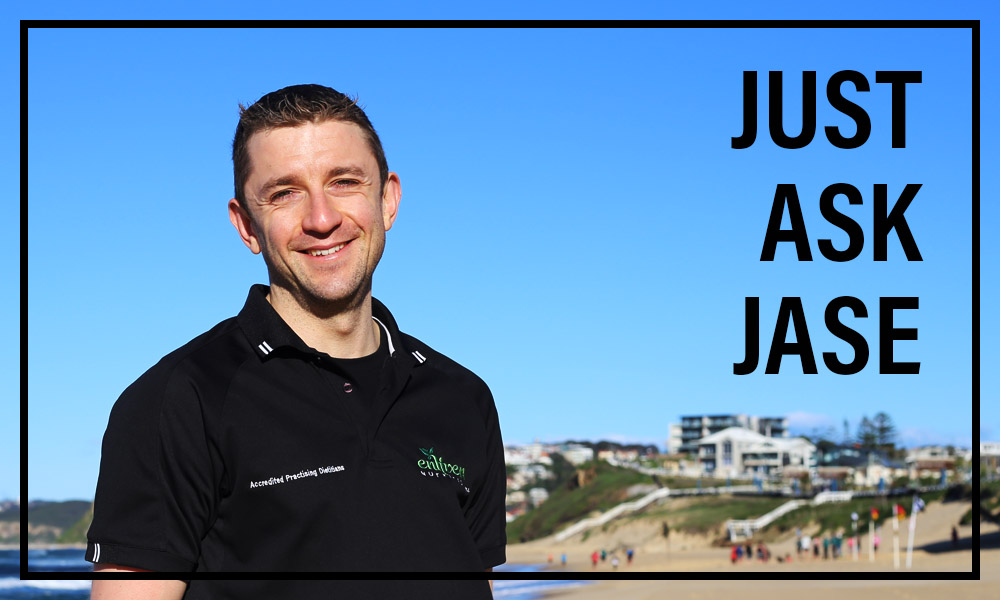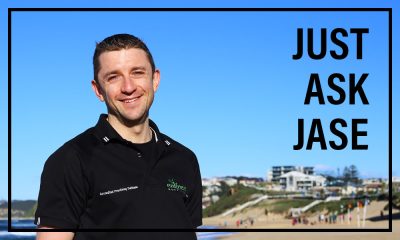
Hi Jase,
I’ve noticed you have been working with a lot of junior athletes lately and was hoping you could help me. My 11 year old son is a State level swimmer, with a very heavy training regime (2x 2 hour pool sessions each day). For some time now, my son has been complaining of been tired and sore. We went for a visit to our General Practitioner who suggested my son should start using a protein powder to help with this. Will protein powder really help my son?
– Tired and Sore

Hi Tired and Sore,
Thank you for your question, and absolutely I have some areas that are worth keeping in mind in this respect. As I have eluded to before, the old saying of “because everyone eats, everyone will have an opinion on nutrition” has never been more true. This means that you will encounter numerous people throughout yours and your son’s life that will no doubt put forward an opinion on what you should and should not be doing in regards to nutrition.
Working with the Grassroots Sports team, and within my role as an Accredited Sports Dietitian I so often have contact with promising junior athletes who to my disappointment have been led astray by incorrect and unqualified sources of nutrition advice. Now I only have limited information regarding your son’s situation, but here is what I can tell you:
Firstly, any advice regarding performance nutrition and recovery nutrition should come from the peak professionals for these areas, an Accredited Sports Dietitian. As well rounded as your GP’s knowledge may be, he does not have the educational background let alone experience of a dietitian or more importantly a sports dietitian (remember the saying that everyone eats therefore everyone will have an opinion on nutrition?)
Whilst protein intake may be an area of concern, the fatigue and muscle soreness can also be attributed to inadequate calorie intake and/or poor dietary quality (think of nutrients such as iron or B vitamins that play key roles in oxygen delivery to tissues and energy metabolism respectively). These are quite common in childhood given the prevalence of restrictive dietary intake (fussy eating habits) in this stage of life. Your accredited sports dietitian is the expert to determine the area of concern and then provide targeted recommendations to remedy the areas of need.
Secondly, I highly doubt that your son’s protein requirement could not be met with food. As an example to this (quite difficult to be exact as I do not know your son’s weight, height, growth rate etc.) but somebody of your son’s activity levels and age could require anywhere between 1-2g/kg bodyweight protein each day. So for a 50kg person, this would equate to between 50-100g protein each day. Considering 100g of any cooked meat provides between 22-28 grams of protein you can see how easily this could be met with the right dietary structure and planning.
Third, let us look at the very real health risks of a junior athlete (under18 years of age) consuming protein powders. Given the body is still developing at this time, it is not advisable to consuming highly concentrated forms of nutrients (such as protein powders). This is due to that fact that both the kidneys (essentially a filtration system) and the liver (nutrient receival and distribution system) are required to metabolise the highly concentrated protein source, and more importantly filter the nitrogen waste products (toxic to the body) that accumulate from protein metabolism. Adults are far better equipped to deal with this load.
And if those points above do not resonate with your son in the culture of junior swimming (where I so often see supplements held in high regard) perhaps the risk of a 4 year ban from the sport for an inadvertent doping violation might. The risks here are very real and I encourage both your son and yourself to undertake the free online Level 1 learning module provided by the Australian Sports Anti-Doping Authority (ASADA). Find the program online here.
Throughout your son’s athletic journey you will both come into contact with a wide range of people that endorse supplement use. Most have the agenda to sell their product (supplement retailers) or are on a commission for referral sales to these establishments (therefore their opinion is heavily tainted). As an accredited sports dietitian, my number one priorities are to ensure the health safety and minimise the risks of any doping violations in future.
Even despite that fact you may see that Enliven Nutrition are also a provider of sports supplements, there are absolutely no 100% guarantees in life regarding inadvertent contamination regardless of what product you use. The top athletes do not use supplements for those reasons, they let their hard work in training and diligence via performance nutrition planning facilitate their world-class results.
— Jase
Got a nutrition or training question? Or just want to know how to become better than yesterday?










